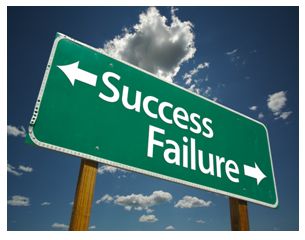Problem: many brilliant innovators wouldn’t recognise their own shortcomings in the charm department even if … (insert painfully humiliating scenario) Solution? Get ready for the Science (or Zen?) of Charisma
Robert Scoble interviews Olivia Fox, who gives captains of industry and academia (e.g. at Deloitte, MIT, Harvard, Yale and Stanford) the means to overcome ‘impostor syndrome’: a pervasive sense that you do not deserve the credibility that you have been given and that every time you speak, you are terrifying close to betraying some inexcusable incompetence you feel you possess but which you have so far succeeded in concealing.
Olivia Fox Cabane is a speaking and communications coach, and founder of Spitfire Communications.
We’ve all heard of innovators needing to be able to able to “embrace failure as an acceptable consequence of being innovative”, but she seems to be taking this to another level:
“In the space of innovation specifically, one of the things that’s most fascinating to me is seeing how important it is to know how to fail successfully and how only the best innovators and the best leaders know how to do that”
In other words, it isn’t merely important for innovators to be tolerant of, or even to enthusiastically embrace failure, she suggests that there is a phenomenon of “failing successfully” which she believes is dependent upon [my extrapolation here] ‘constructive cognitive responses’ (to failure) which she feels she can equip innovators to deploy
She is also the author of The Pocket Guide to Becoming a Superstar in Your Field, a handbook on the art of networking.
She is considered an authority on business relationship building, and has been featured and quoted by leading news and business media, including Bloomberg TV, MSN.com, Entrepreneur Magazine, BusinessWeek, The New York Times, and Smart Money.
She has lectured on charisma at Yale University, Massachusetts Institute of Technology, and Harvard University.
Author’s note:
Something that I found very encouraging (from an iij perspective) reading through some of the literature on her website, was that there seemed to be a progression from offering general ‘business communications skills advice’ through to offering ‘leadership development’ and that the latest stage in this journey seems to be working towards offering ‘innovator development’ (i.e., as a ‘coaching offering’, although she doesn’t seem to be providing this as a separate program… yet!) which I don’t remember seeing elsewhere. Maybe you know of something like this: please let me know.
Is ‘innovator development coaching’ something we haven’t seen before?
I do remember seeing things which seemed to go in the direction of ‘facilitating innovation’ as an (at the time unnamed?) impressively contrarian organisational tactic beginning to be suggested by management consultants in the late 1980s and early 1990s, particularly by Tom Peters (see his book ‘Liberation Management‘ which, if I remember, did offer some tips on how managers could make themselves more innovation-receptive).
If leadership coaching providers are going to branch out into innovator coaching (not just ‘how to discover the innovator within’ but also, as in this case ‘how an innovator can be a good communicator, manager, businessperson, collaborator and business partner at the same time’) this certainly sounds like it could be something the iij would wish to encourage!


